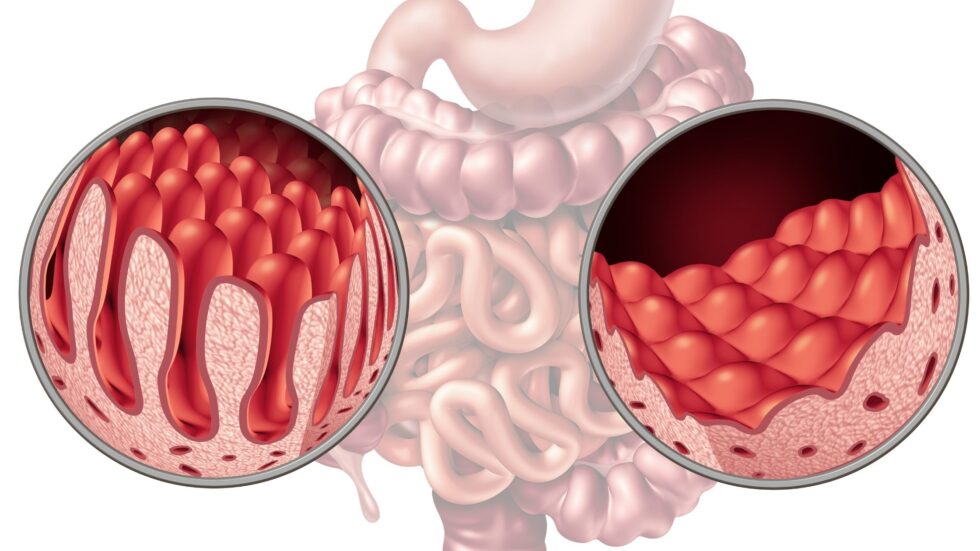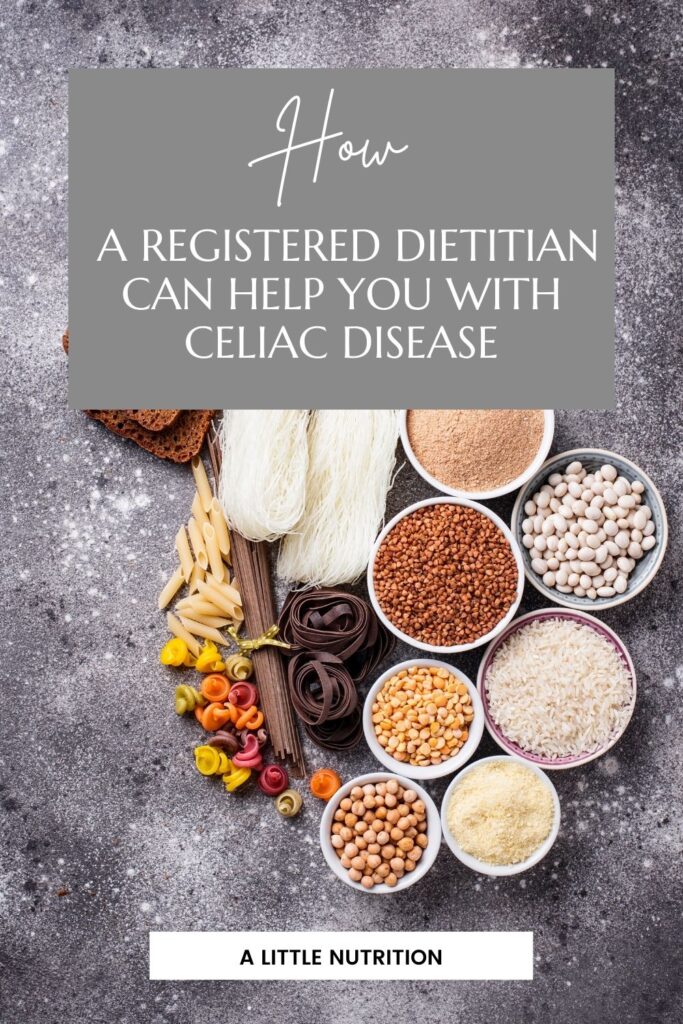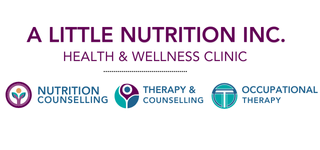What is Celiac Disease?
Celiac disease is an autoimmune condition in which your body reacts poorly to gluten. Gluten is a type of protein that is found in many grains including wheat, durum, spelt, kamut, barley, bulgar and rye. When you have celiac disease, gluten damages your small intestine and prevents your body from properly absorbing nutrients from the foods you eat. If left untreated, celiac disease may lead to other health problems such as nutrient deficiencies. It is not uncommon for someone with celiac disease to experience folate, iron, calcium, vitamin D or protein deficiency. Individuals with celiac disease may also have a higher risk of developing additional health conditions such as coronary artery disease, bowel cancer, multiple sclerosis and type 1 diabetes.
How does Celiac Disease Present In The Body?
The signs and symptoms of celiac disease can vary from person to person and may look different depending on your age. Some people experience severe symptoms while others have mild symptoms. Yet, some people do not experience any symptoms at all.
Some of the most common signs and symptoms for children include:
- Diarrhea and/or constipation
- Pain in the abdomen
- Malnutrition – this can include things such as anemia, issues with teeth, failure to thrive, developmental delays or problems with growth
- Vomiting
- Fatigue
- Irritability
- Behavioural issues
Some of the most common signs and symptoms in adults include:
- Weight loss or weight gain
- Abdominal pain
- Gas
- Diarrhea and/or constipation
- Mouth ulcers
- Fatigue
- Dermatitis herpetiformis
- Bone/joint pain and/or arthritis
- Osteoporosis or osteopenia
- Depression/anxiety
- Canker sores inside the mouth
- Tingling or numbness in the hands or feet
- seizures/migraines
- Fertility issues
- Migraines and/or seizures
Risk Factors Associated with Celiac Disease
Celiac disease is largely genetic. If you have an immediate family member with celiac disease, there is a 1 in 10 chance that you will also have the condition. If you are experiencing symptoms and have a genetic link to celiac disease, it is best to speak with your doctor.
Screening/Diagnosis: Testing for Celiac Disease In the Body
In order to check for the presence of celiac disease, your doctor may order blood tests to determine if there is a high level of IgA antibody present. This antibody level rises because of your body’s autoimmune response to gluten. You may be required to consume gluten until the test is completed in order for the test to accurately check for these antibodies. Your doctor may request additional testing for the diagnosis of celiac disease such as a small bowel biopsy. This procedure can help confirm the presence of celiac disease in the small intestine. Alternatively, your doctor may advise you to try a gluten-free diet to see if your symptoms resolve.

Managing your Diagnosis
Currently, the only treatment for celiac disease is following a gluten-free diet. Once gluten is removed from your diet, it allows the small intestine to heal and helps to resolve symptoms. It is recommended that people with celiac disease follow a gluten-free diet for life. Even small amounts of gluten in the diet can cause symptoms and damage to the small intestine. After 6 to 12 months of following a gluten-free diet, symptoms of celiac disease should resolve.
Gluten-Free Foods
Some gluten-free foods include:
- Fresh fruits and vegetables
- Dairy products
- Fresh/frozen unseasoned meat, fish, poultry and seafood
- Beans, lentils, legumes, and nuts
- Gluten free grains such as rice, soy, potato, quinoa, amaranth, arrowroot, corn, flax, gluten-free oats, millet, nut flours, tapioca

Reading Food Labels
It is important to always read food labels on products you buy. If a product contains gluten it will be written on the label (ex. contains wheat). Understanding which foods contain gluten are important as it will help you navigate the grocery store and choose foods that are right for you. Many foods that do not naturally contain gluten may have gluten added during processing either through the addition of flavours, spices, another food product or even through cross-contamination during processing. There are many gluten-free products available in stores that are labelled as gluten-free which can make shopping easier. Many restaurants also offer gluten-free meal options which will allow you to eat out and enjoy social events involving food.
Medications
There are currently no medications used for the treatment of celiac disease itself. However, if you have other health conditions that have resulted from celiac disease, you may require medications for the treatment of those conditions. Individuals who are experiencing vitamin or nutrient deficiencies as a result of celiac disease may be prescribed supplements to help with these deficiencies.
Additional Resources
If you are feeling overwhelmed by your diagnosis, it may be beneficial to speak with a therapist. A diagnosis like Celiac disease can be hard to come to terms with, and speaking with a therapist can help you manage the emotional underpinnings related to the changes in your life. If you need to speak with a therapist, let us know. We have trained mental health counsellors on our team to help you in your health journey!
When Should You Consider Meeting With A Registered Dietitian?
If you are ready to make dietary changes and start a gluten-free diet, it may be time for you to speak with a Registered Dietitian. Registered Dietitians can help you navigate the world of nutrition and provide you with individualized support and recommendations. They will work with you to help find the nutritional plan or pattern of eating that works best for you and your lifestyle.
What Our Dietitians Can Do For You
During your initial appointment, you will receive an 80-90 minute session with a knowledgeable and compassionate Registered Dietitian that will help you feel supported and educated. Your Dietitian will:
- Clear up the confusion surrounding what, when and how much to eat to help you manage the symptoms of celiac disease.
- Assist you with transforming your favourite meals into gluten-free meals.
- Advocate and/or communicate with your primary healthcare Team, doctor or specialist.
- Explain the basics of celiac disease, myth bust and provide you nutrition recommendations.
- Help you manage emotions related to making the changes required to improve your health and quality of life.
- Empower you to manage your health by understanding how to grocery shop and read nutrition labels for gluten-free products.
- Provide you with cooking tips, meal prep guidance, recipe modifications, and snack ideas for gluten-free eating.
- Provide you with tips and guidance on gluten-free grain substitutions.
- Help you navigate eating out when following a gluten-free diet.
- Provide you with information on where you can purchase gluten-free foods in your community.

Benefits of Working with a Dietitian at A Little Nutrition
We want you to feel better about how you nourish your body, and help you learn how to incorporate foods that can improve your symptoms of celiac disease and overall well-being. A Little Nutrition is a safe place to receive non-judgemental health advice and guidance.
Our Registered Dietitians provide a weight inclusive approach to health care and will support you on your nutritional journey. When you work with one of our team members, you can consider them your personal food encyclopedia and get expert advice on your nutrition questions. Your dietitian will get to know you, and how you eat, your food preferences, intolerances, and provide you with a personalized plan of action to help improve your symptoms.
Your dietitian also understands that eating and food may be an emotional experience for you, and will help you assess your relationship with food. If you have a poor relationship with food, your dietitian can help guide you through the process of making peace with food and resolving emotional eating.
No matter where you are at in your health journey, your dietitian will be able to help you with the motivation, support and accountability to help reach your goals.

Nutritional Services Overview
How many visits are recommended to see changes in my health?
Short answer: Most of our clients report seeing markable changes in their eating and health after 3 to 5 appointments spaced out over 3 to 6 months. However, some clients require appointments every 2 weeks until they can get the hang of their new pattern of eating. Some clients only need 1 or 2 appointments. Your dietitian will give you a recommended treatment plan at your initial appointment.
Long answer: It really depends on the number of health and lifestyle concerns that need to be addressed. Additional skills and education around meal planning, meal preparation and grocery shopping may require extra time in order to implement and develop strong habits. In addition, there may be emotional underpinnings that are discovered during your meeting with the Registered Dietitian such as dieting trauma, emotional and stress eating, and poor body image and these may need to be worked through as well. We also have counsellors and therapists who can help you work through the everyday challenges of stress management, anxiety, depression, grief and relationship struggles. Psychotherapy is a tool that creates success when it is combined with health behaviour changes.
Are my appointments covered by Manitoba Health or Extended Medical Health Insurance?
Manitoba health does not cover private Registered Dietitian services. However, if you have extended medical insurance through your employer, you may have coverage for Registered Dietitian and Therapist services. If you are uncertain about your coverage, you can call our office 1-204-515-7466 and we can look into it for you. In addition, if your plan allows for direct billing, we would be happy to directly bill your appointment and keep the out-of-pocket expense as low as possible.
How much do appointments cost?
Initial appointments are 80-90 minutes in length and cost $190
Follow-up appointments are 50-60 minutes in length and cost $135
How do I book an appointment with a Registered Dietitian?
To book an appointment with one of our Registered Dietitians or therapists you can:
Phone: 204-515-7466
Email: admin@alittlenutrition.com
Book online: https://alittlenutrition.janeapp.com/
Pin Me For Later

References:
Government of Canada (2018). Celiac Disease. Accessed from: Celiac Disease – Canada.ca
Celiac Disease Foundation (2021). Accessed from: Celiac Disease Screening | Celiac Disease Foundation
The Canadian Celiac Association (2021). Accessed from: Home Page – Canadian Celiac Association






